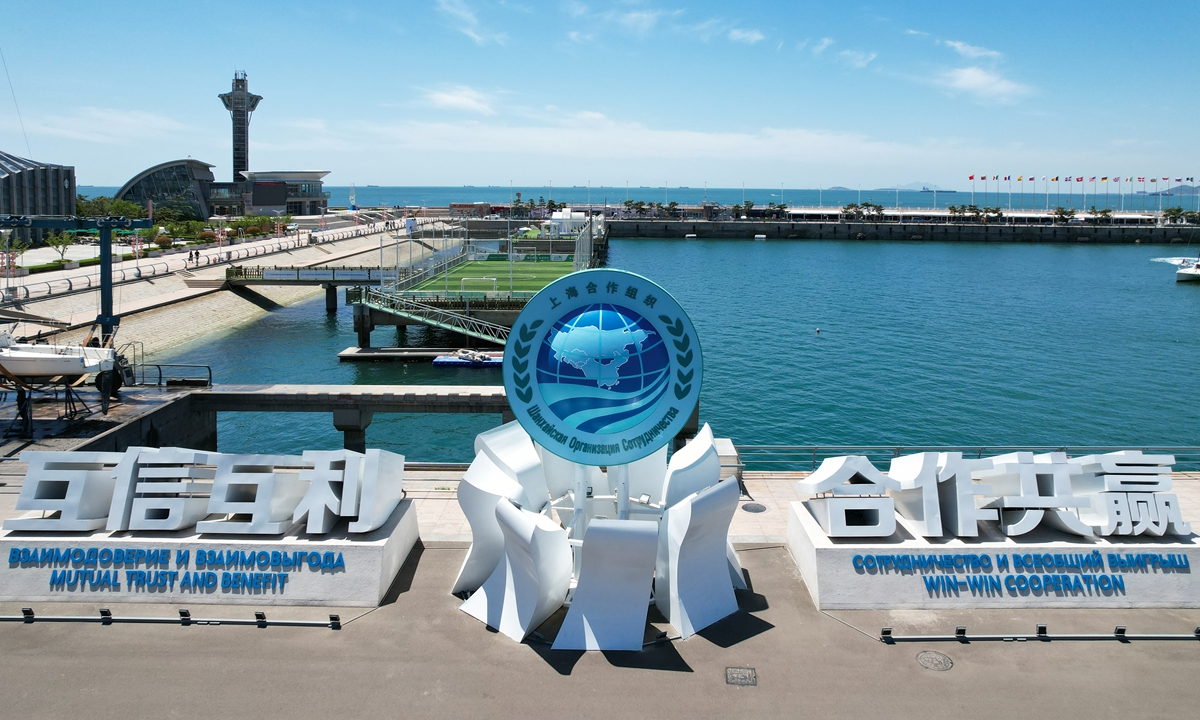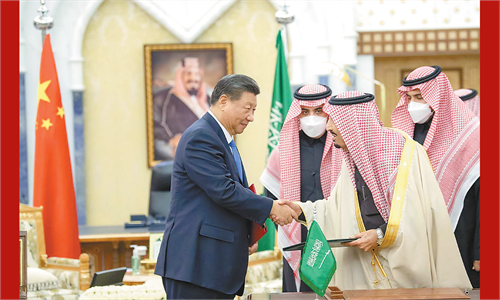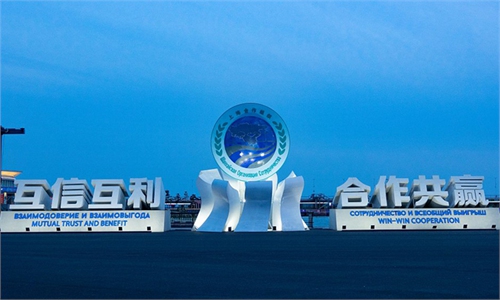Saudi Arabia leaning closer to East, as cabinet approves status as SCO dialogue partner

A sculpture featuring the logo of the SCO is seen in Qingdao, East China's Shandong Province. Photo: VCG
Saudi Arabia is leaning closer to the East and eyeing stronger cooperation within organizations such as the Shanghai Cooperation Organisation (SCO) to gain strong momentum for future development, experts said as the country approved a memorandum on granting the kingdom the status of a dialogue partner in the SCO.
Saudi Arabia's cabinet approved the decision on Wednesday, the country's state news agency Saudi Press Agency (SPA) reported.
Saudi Arabia has expressed frequently it is highly interested in joining China-led multilateral frameworks, such as the SCO and "BRICS plus."
The SCO's appeal is growing for non-member countries, as the SCO has expanded rapidly in recent years, and member countries have a big influence both in the region and internationally, Zhu Yongbiao, director of the Center for Afghanistan Studies at Lanzhou University, told the Global Times.
It is time for Saudi Arabia to expand pragmatic cooperation that can help the country implement major projects, such as the country's Vision 2030 reform plan, which is a strategic framework to reduce Saudi Arabia's dependence on oil and diversify its economy, according to Zhu.
Riyadh's move comes after a landmark agreement was reached between Saudi Arabia and Iran mediated by China to resume diplomatic ties and reopen embassies and missions within two months after seven years of no diplomatic ties between the two.
Experts said the deal between Riyadh and Tehran has swept aside Saudi Arabia's big concern over joining the SCO, as the Iranian Embassy in China disclosed to the Global Times previously that Iran could obtain full SCO membership this year.
In recent years, Saudi Arabia is making bigger adjustments than before in terms of diplomacy and economy by reducing dependence on the US and leaning closer to the East, to strike a balance and diversify international cooperation, according to Zhu.
Ties between Saudi Arabia and the US have been strained in recent years over oil and human rights issues. "When Saudi Arabia is pushing for its 2030 vision of reducing its reliance on oil, the US is pushing the country to produce more oil and gas after Washington banned Russian oil and gas after the Ukraine crisis," said Wang Jin, associate professor and assistant director of the Institute of Middle East Studies, Northwest University of China.
China is an ideal partner in providing effective and pragmatic cooperation for Saudi Arabia, as it respects Saudi Arabia's choices and exerts no additional conditions on cooperation, Zhu said.
On Wednesday, construction of a major chemical project, which is a joint investment initiative by China and Saudi Arabia, commenced in Panjin, Northeast China's Liaoning Province.
Total investment in the project is 83.7 billion yuan ($12.2 billion), of which Saudi Aramco holds a 30 percent stake while North Huajin Chemical Industries Group Corporation and Panjin XinCheng Industrial Group hold 51 and 19 percent, respectively. After it goes into operation, the project is expected to become a world-class petrochemical and fine chemical industry base in China.



